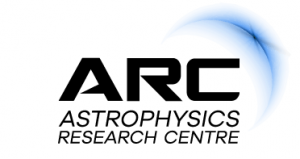Bumper cohort of UKZN Delegates participate in SKA conference
A bumper cohort of students, postdoctoral researchers and staff from UKZN’s Astrophysics and Cosmology Research Unit (ACRU) recently returned from Cape Town where they participated in the Square Kilometre Array (SKA) Postgraduate conference. The SKA funds astronomy and engineering students and postdoctoral researchers who have a record of academic excellence and an interest in working on the SKA project. This conference is a platform for these students and postdoctoral researchers to display their research.
The event is attended by a large number local professional astronomers and also includes many international astronomers. The UKZN delegation, which was the largest group in attendance, of any university, delivered excellent presentations with lead to a great deal of engagement with the audience. The conference provided an opportunity for the sharing of ideas and experiences pertaining to the astronomy landscape. It also allowed for future collaborations with local and international astronomers to be discussed.
Miss Sinenhlanhla Precious Sikhosana, an ACRU PhD student delivered an excellent poster presentation on “Diffuse Radio Emission in ACTPol Clusters” which is the subject of her research. Sikhosana said that the highlight of the conference was the question and answer session. “It was less formal, more interactive and people raised their views on how to make the conference better. We, as students, received constructive criticism from the senior academics,” she said.
Mr Kabelo Kesebonye, a current ACRU Masters student also presented a well-received poster on his work entitled “Radio Frequency Interference (RFI) measurements at a possible HIRAX outrigger site in Botswana”. For Kesebonye, the highlight of the conference was meeting other SKA postgraduate students and hearing about their projects. “I got to learn a lot about radio astronomy from just listening to people talk about their research,” he said. Kesebonye plans to study a PhD in astronomy so that he can further develop his instrumentation and research skills.
Dr Matt Hilton, a senior astronomy lecturer at ACRU said, “The annual South African Radio Astronomy Observatory (SARAO) bursary holder’s conference provides a valuable opportunity for our postgraduate students and postdocs to gain experience of presenting their work. The range of work being done in South African radio astronomy is very impressive, from engineering to science projects that will be done with MeerKAT, and I was encouraged by the overall level of the presentations by the students and postdocs. The plenary talks organised by SARAO for this year were also excellent.”
Inspiring Greatness
© University of KwaZulu-Natal: All Rights Reserved






